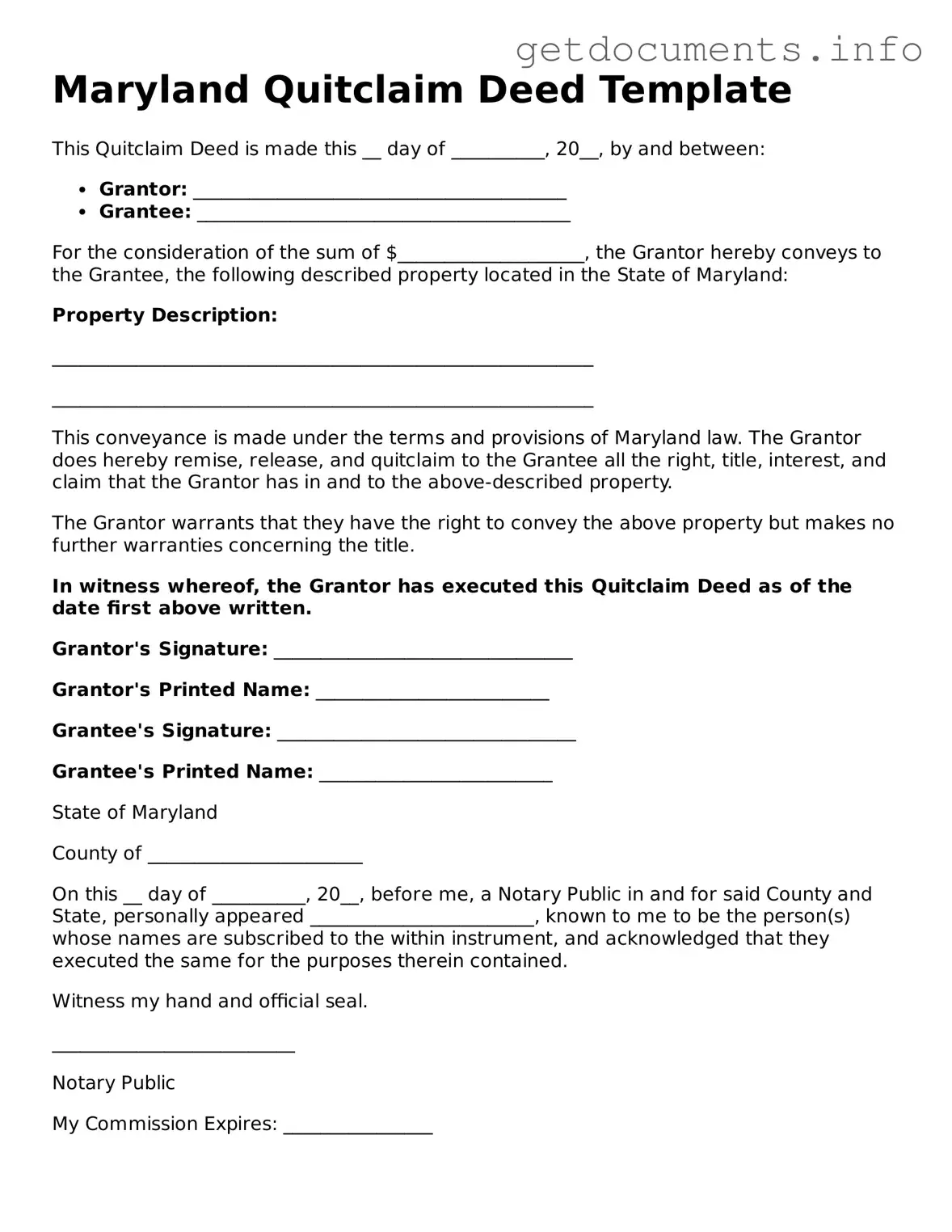Free Quitclaim Deed Template for Maryland
A Maryland Quitclaim Deed is a legal document used to transfer ownership of real estate from one party to another without any warranties regarding the property’s title. This form is often utilized in situations where the parties know each other, such as family transfers or divorce settlements. To initiate the transfer process, fill out the form by clicking the button below.
Access Quitclaim Deed Editor

Free Quitclaim Deed Template for Maryland
Access Quitclaim Deed Editor
Got places to be? Complete the form fast
Fill out Quitclaim Deed online and avoid printing or scanning.
Access Quitclaim Deed Editor
or
⇩ PDF File
